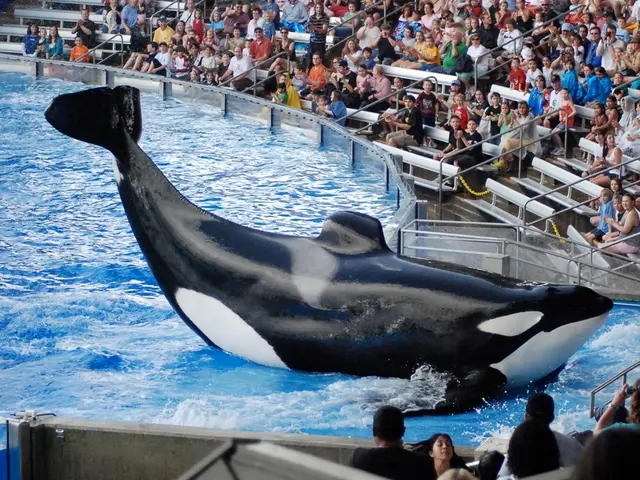Risky shift in hierarchical arrangement of Ukraine's anti-corruption agencies occurs amidst wartime, according to an expert's viewpoint
Ukraine's Anti-Corruption Institutions Undergo Change, Sparking Controversy
In a move that has sparked widespread criticism, Ukraine's parliament has passed a bill altering the subordination of key anti-corruption institutions. The decision, made on July 22, 2025, places the National Anti-Corruption Bureau (NABU) and the Specialized Anti-Corruption Prosecutor's Office (SAPO) under the direct authority of the Prosecutor General, a political appointee nominated by the president and confirmed by parliament.
The move was officially framed as an effort to strengthen the efficiency and effectiveness of these bodies and a response to alleged Russian infiltration. However, no credible evidence was provided to support these claims. The passage of the law was marked by a lack of transparency, minimal debate, limited involvement of specialized committees, and rapid legislative action reminiscent of earlier periods of controversial governance in Ukraine.
Many experts and civil society view this decision as a de facto political takeover, which could weaken anti-corruption efforts amid ongoing war. The potential implications of this decision are serious and multifaceted.
Impact on the Fight Against Corruption
Subordination to the Prosecutor General, an official politically linked to the president, risks undermining the operational independence essential for NABU and SAPO to investigate and prosecute corruption effectively. This could weaken anti-corruption efforts amid ongoing war.
Domestic Backlash
The legislation provoked mass protests across Ukraine, reflecting public concern about the rollback of anti-corruption gains and fears of renewed political interference in sensitive investigations. Thousands of people protested in central Kyiv against the law signed by Volodymyr Zelensky that removes the independence of two key anti-corruption bodies.
International Reaction and Ally Relations
Western partners, including the EU, U.S., UK, and G7, strongly criticized the law, seeing it as a reversal of rule-of-law reforms tied to Ukraine’s European integration aspirations and financial aid. Since these anti-corruption institutions were created with substantial Western support after 2014, their independence was a key condition for continued political and financial backing, including visa-free travel and aid. The controversial decision strained Ukraine’s relations with its allies, leading to calls for the reinstatement of the agencies' independence and casting doubt on Ukraine’s commitment to reform.
Following protests and international pressure, President Zelensky reversed parts of the measure, restoring NABU and SAPO’s independence on July 31, 2025, but retained changes that diminished the independence of other prosecutors, which experts argue still conflict with EU accession requirements.
In summary, the parliamentary decision to alter the subordination of Ukraine’s key anti-corruption agencies was a politically contentious move presented as a wartime efficiency measure but widely perceived as undermining institutional independence, provoking domestic and international backlash, and threatening Ukraine’s anti-corruption progress and relationship with Western allies. Efforts to partially reverse the changes show the ongoing struggle to balance governance reforms with political control amid crisis.
Armands Astukevics, a researcher at the Center for East European Policy Studies, believes this decision essentially destroys the system created to fight corruption. He stated, "This decision is very risky and negative." The decision to change the subordination of the anti-corruption bodies could prove a major stumbling block in Ukraine's progress towards the European Union.
Zelensky, however, has rejected the criticism, saying the law was needed to root out alleged Russian influence in anti-corruption institutions. He has also promised to propose a new bill that would "ensure the norms for the independence of anti-corruption institutions." Time will tell if these promises will lead to a more sustainable and effective solution in the fight against corruption in Ukraine.
Read also:
- United States tariffs pose a threat to India, necessitating the recruitment of adept negotiators or strategists, similar to those who had influenced Trump's decisions.
- Weekly happenings in the German Federal Parliament (Bundestag)
- Southwest region's most popular posts, accompanied by an inquiry:
- Discussion between Putin and Trump in Alaska could potentially overshadow Ukraine's concerns








